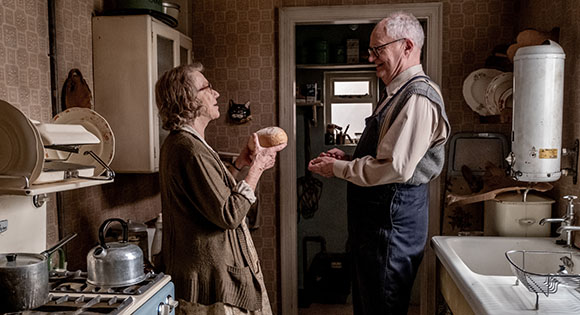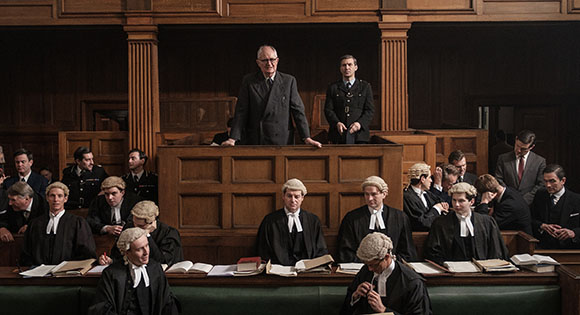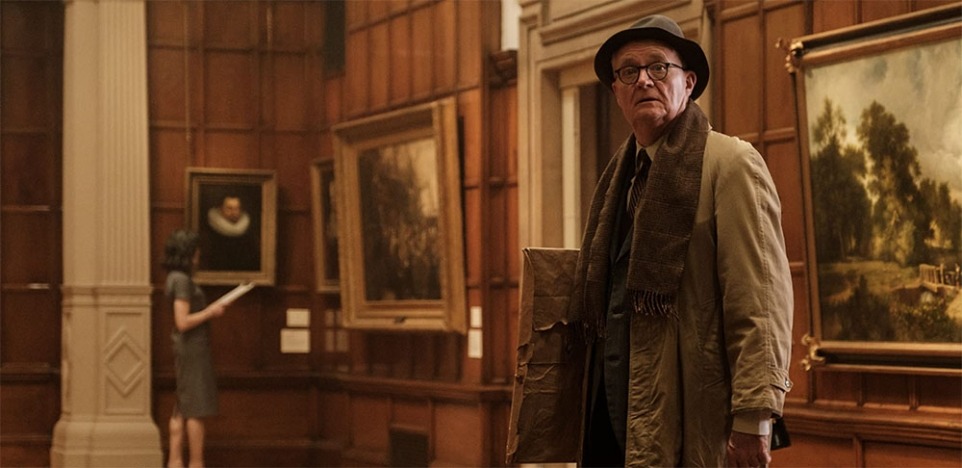Kempton Bunton (Jim Broadbent), a 60-year old taxi driver, is upset that people like him have to pay for a license in order to watch television. When he reads in the newspaper how much the government has spent for a portrait of The Duke of Wellington by Goya, he decides to steal the painting from the National Gallery in London. He sends ransom notes saying he will return the painting if the government will pay more attention to the needs of poor people. He figures the ransom money will pay for a lot of TV licenses.

The Duke tells the story of this modern-day Robin Hood who in 1961 did attempt to steal from the rich to give to the poor. Jim Broadbent is convincing as the fearless and undaunted idealist. Helen Mirren plays his wife, who is not in on the scheme, and Fionn Whitehead plays their son, who helps hide the painting in their home.
This is a delightful true crime movie full of twists and turns. But its strongest moments come after Kempton returns the painting and is put on trial for theft. Given the chance to speak for himself, he explains that he has always looked out for other people and gotten in trouble for it. When he was just 14, he got dragged out to sea by a riptide but a passing boat saved him. He knew someone would come because he had faith in people. He adds:
“I knew someone would. I am not me without you. We all need each other. You are me. It's you who makes me me. And it's me that makes you you. Humanity is a collective project.”

He goes on to explain that he’s concerned about war widows and the pensioners, the boys who went to war and are now over 65 and are isolated. “My philosophy – the I’m you and you’re me thing – tells me that every time someone gets cut off from the rest of us, this nation becomes a foot shorter.”
It’s not often that you hear the African philosophy of ubuntu articulated in a courtroom. But that’s the takeaway from The Duke. Ubuntu means “I am because we are.” As Archbishop Desmond Tutu put it:
“A person is a person through other persons. We learn how to think, how to walk, how to speak, how to behave, indeed how to be human from other human beings. We need other human beings in order to be human. We are made for togetherness, we are made for family, for fellowship, to exist in a tender network of interdependence.”
